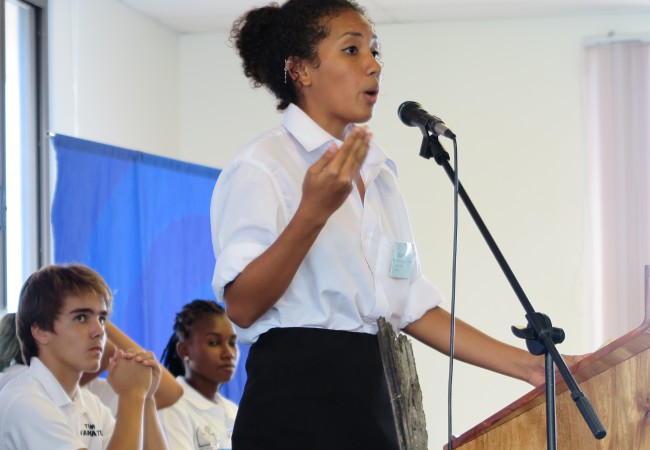
Melanesian School Debate 2015 in pictures
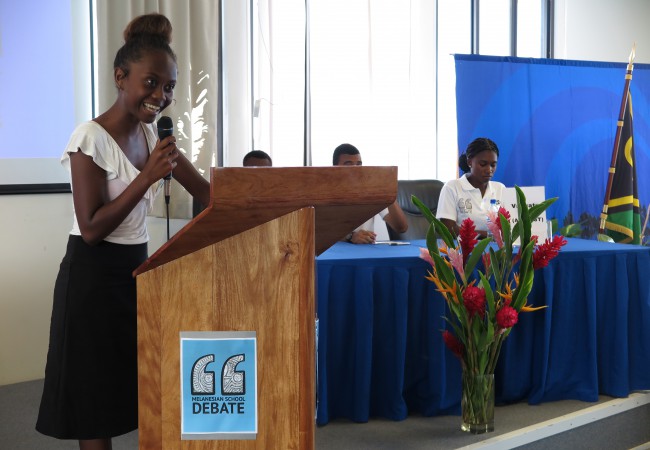
The first debate of the competition saw the Solomon Islands defeat Vanuatu on the motion that ‘the Westminster system of governance is incompatible with Melanesian kastom’
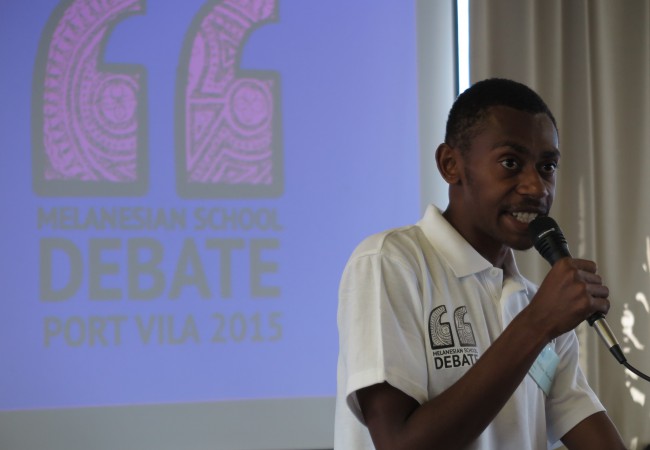
Participants researched and prepared arguments on a range of topics including climate change refugees, the UN Security Council and diplomacy with Asia.
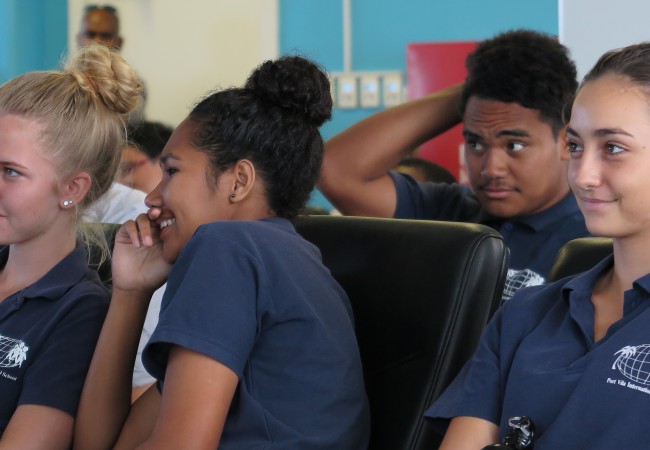
The debates encourage critical thinking with arguments backed up by research and evidence.
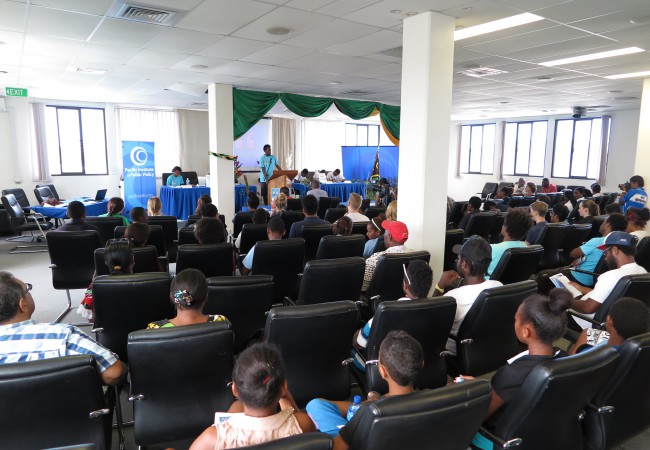
Members of the public came down each day to support the students and engage in the interactive question time.
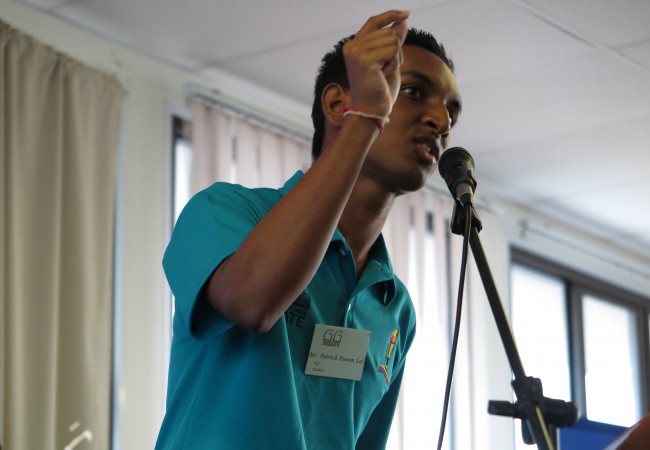
Fiji’s Patrick Lal argues in the negative that Melanesian countries should accept climate refugees from other Pacific island countries.
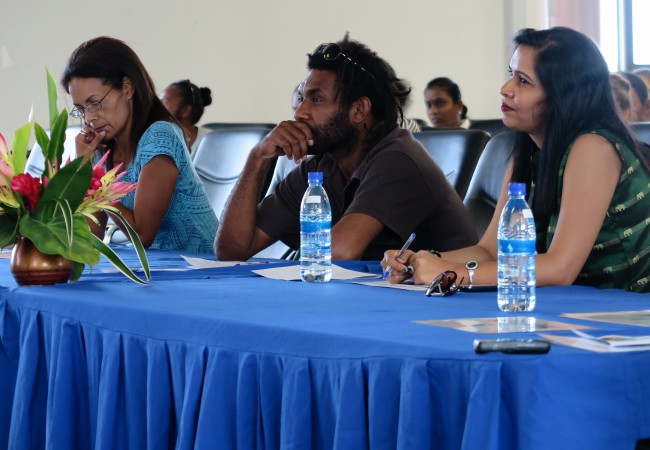
The eloquence and insight of the young leaders impressed both audience and adjudicators, who had a challenge each time to select a winner.
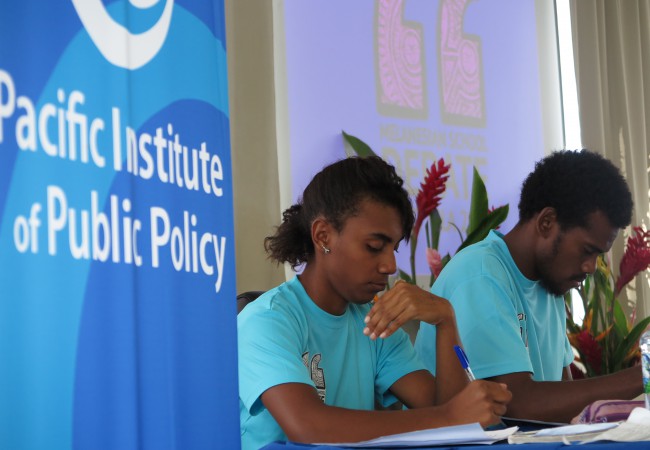
With Papua New Guinea unable to attend, students from last years debate were able to step in and form an All Stars team.
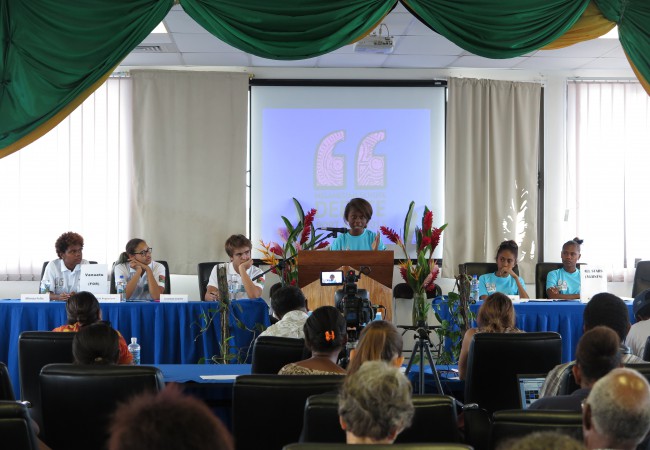
The kind donation of the VNPF conference room provided a professional environment for the students to present.
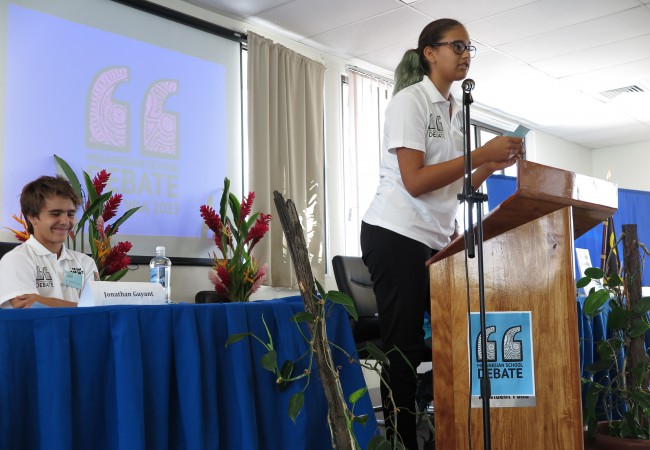
Arguing that Melanesian countries should serve a non permanent members to the United Nation Security Council, Kali Regenvanu of Vanuatu puts forward a convincing argument.
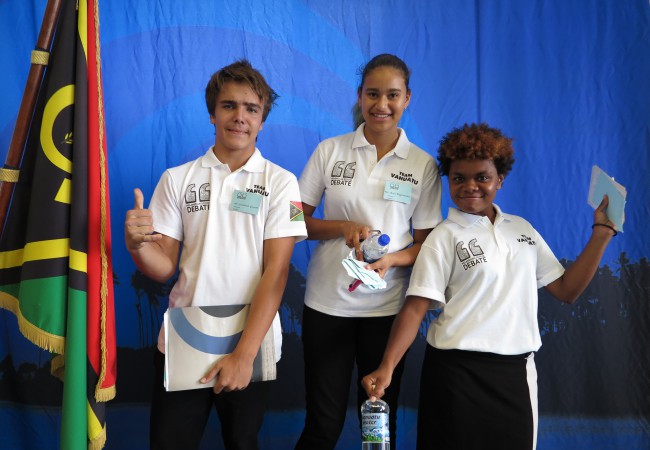
Team Vanuatu successful in the early rounds against the Melanesian All Stars (L-R) Jonathan Guyant, Kali Regenvanu, Alfonia Felix.
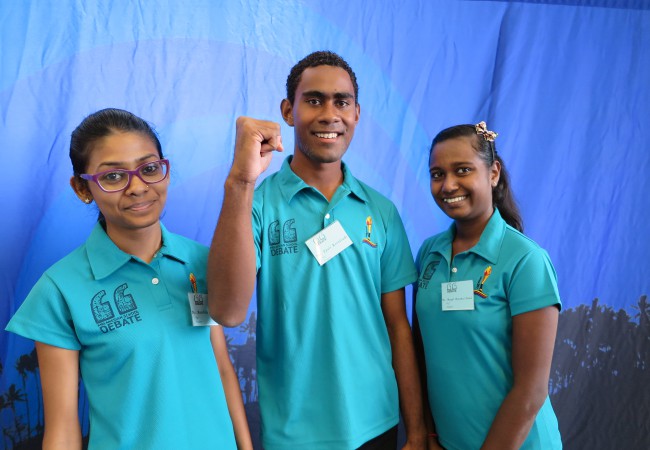
Newcomers to the competition, the Fiji team (L-R): Anoshika Nath, Epeli Koroivuki and Shayal Chnad.
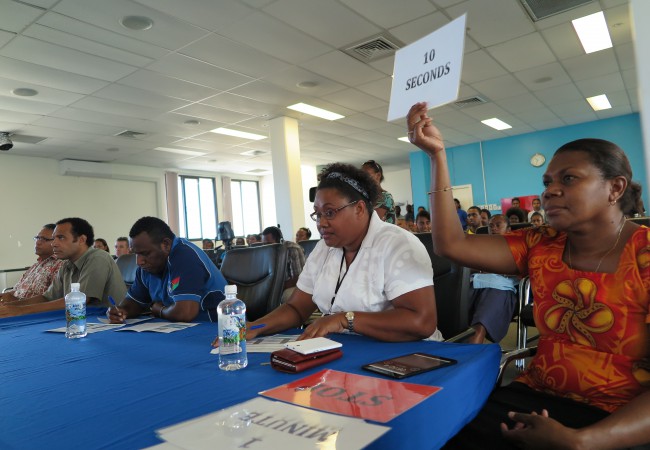
Time keeper Mrs. Carol Alick signals the final 10 seconds for the speaker to wrap up their case.
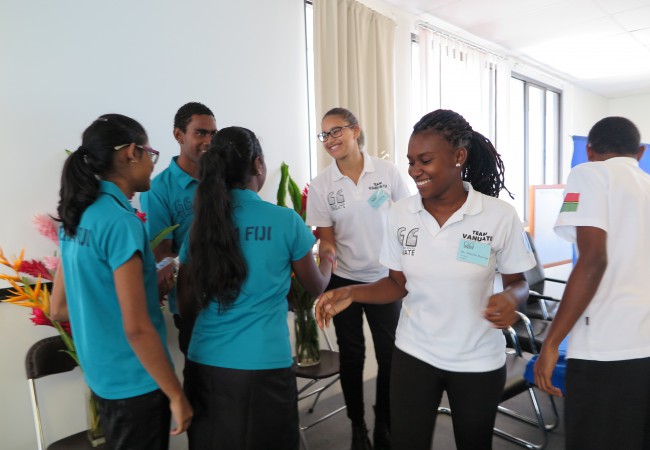
After a captivating series of debates throughout the week, it was Solomon Islands and Vanuatu to qualify for the Grand Final.
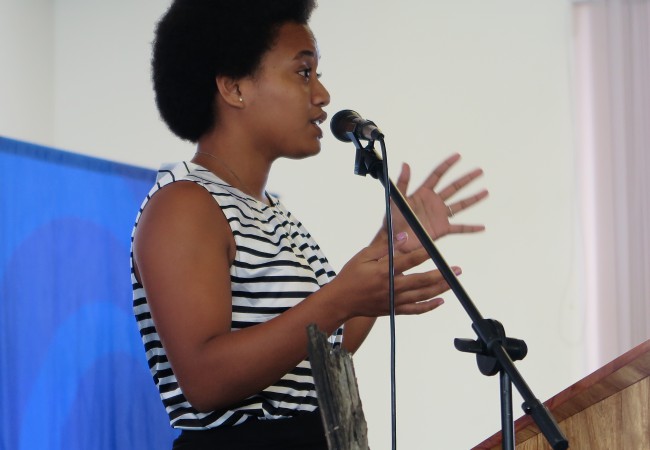
Jesse Langonilakeba from the USP All Stars team won the Best Speaker award in the runners-up final, with a compelling argument against forging stronger ties with Asian neighbors.
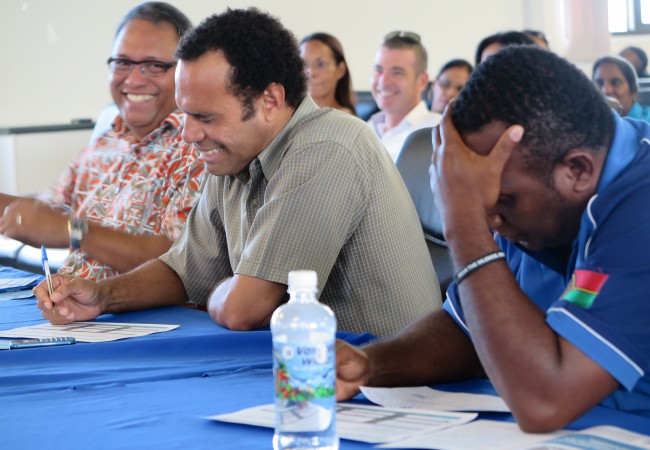
Adjudicators Mr. Francis Herman and Mr. Ralph Regenvanu enjoy the lively presentation of team Fiji in the Runners Up Final.
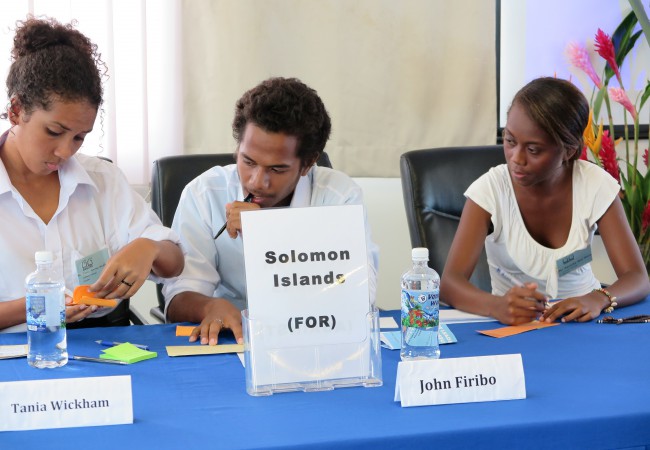
Solomon Islands prepare their rebuttals in the Grand Final. : (L-R): Tanya Wikham, John Firibo and Patisha Wate.
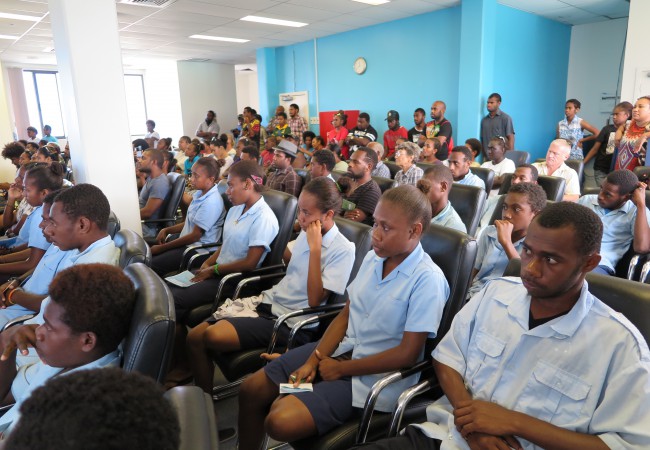
Students and public consider the Grand Final motion; that Melanesia must globalise to succeed.
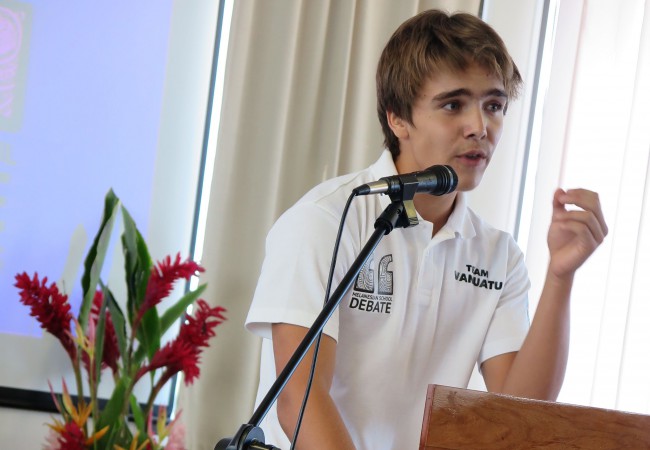
Best speaker for the 2015 grand final was awarded to Jonathan Guyant of Vanuatu for putting a personal face to the topic and what it means to be successful in Melanesia.
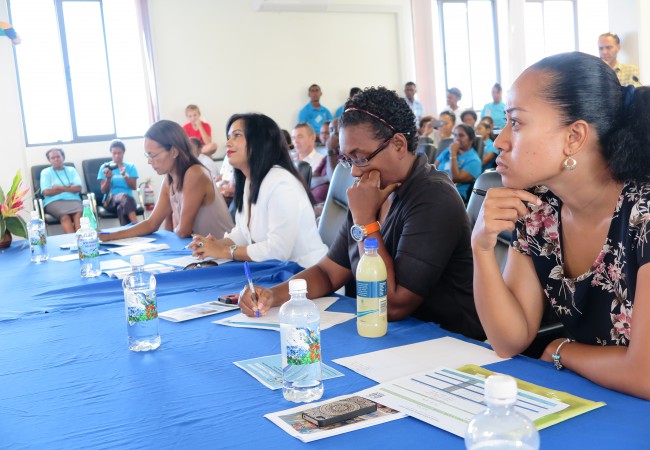
The panel of adjudicators for the Grand Final comprised an esteemed panel which included Ms. Sarah Mecartney, Policy expert, Ms. Sofia Shaw, USP Law, Ms Talita Tu’ipulotu, PACMAS and Ms. Christina Bare-Karae, UNICEF.
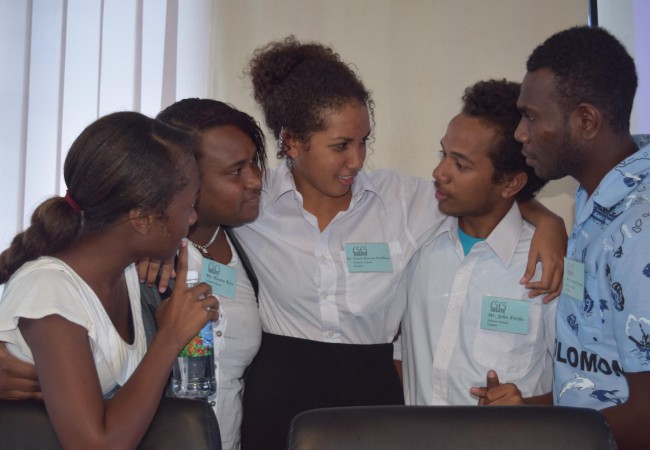
Team members of Solomon Islands come together at the conclusion of the Grand Final.
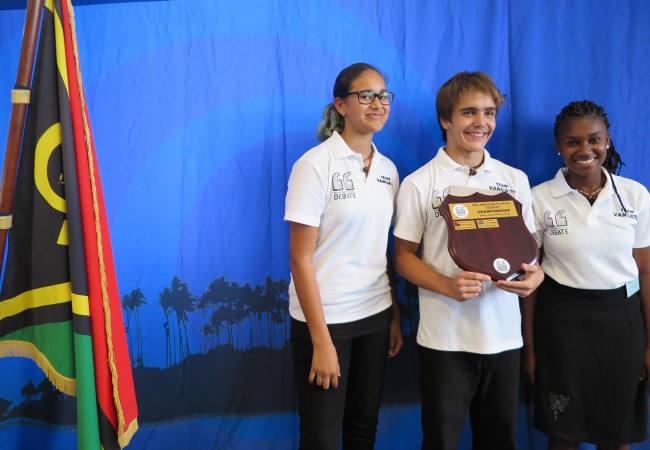
Kali Regenavnu, Jonathan Guyant and Aleesha Kalsrap are successful in the grand final debate against the Solomon Islands.
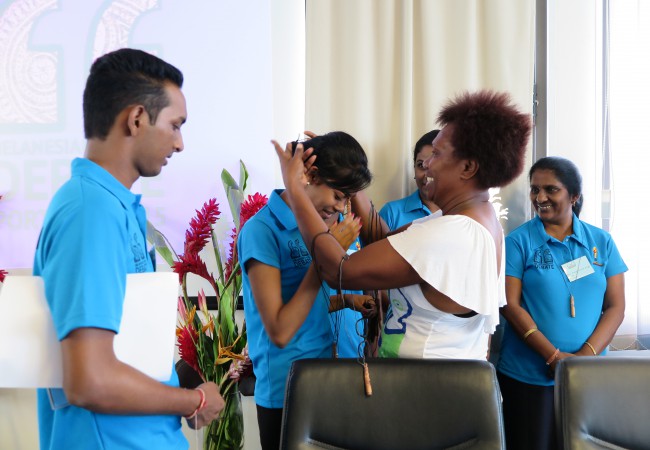
Fiji, who is competing in the debate competition for the first time, show great promise for the future.
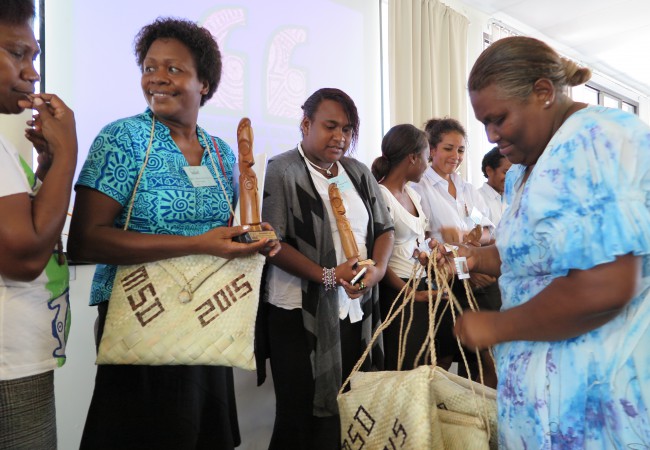
Solomon Islands is presented with runners up trophies after the Grand Final debate.
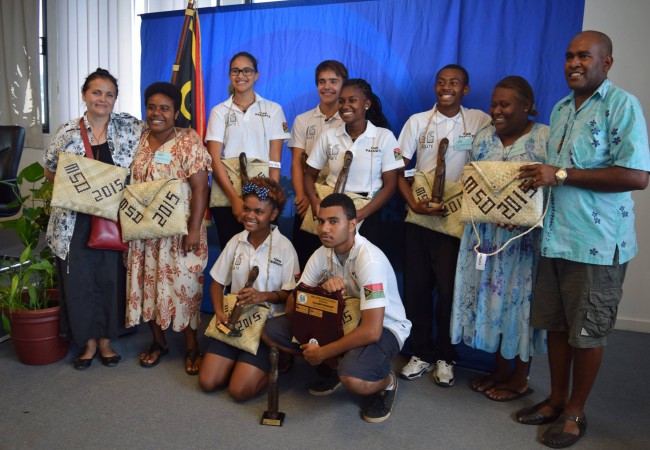
Team Vanuatu with the teachers that supported them throughout their preparations for the competition.
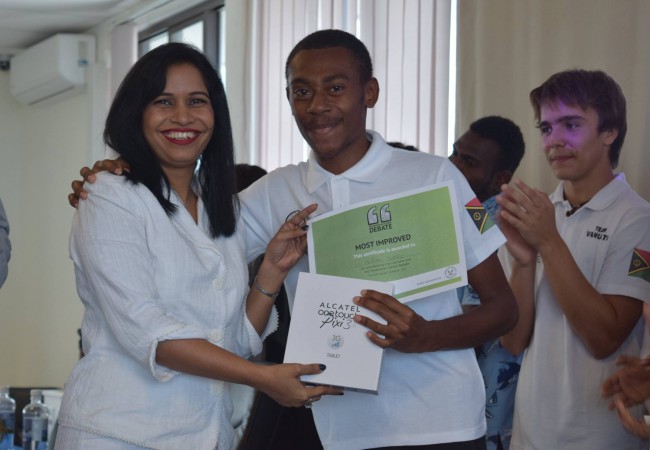
William Natiko of Vanuatu is presented with his award for Most Improved, kindly donated by Vanuatu Copra and Cocoa Exporters.
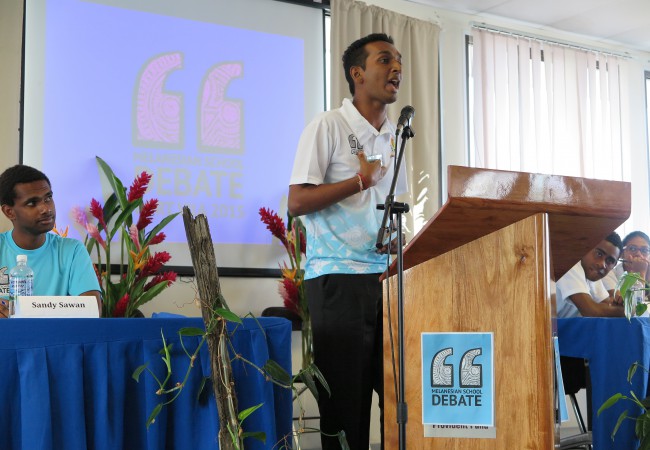
Patrick Lal of Fiji comes away with the Peoples Choice award, with his charismatic and entertaining presentation style.

Tanya Wickham of the Solomon Islands is awarded Best Speaker for the overall competition, with her ability to rebut through clear and compelling arguments.
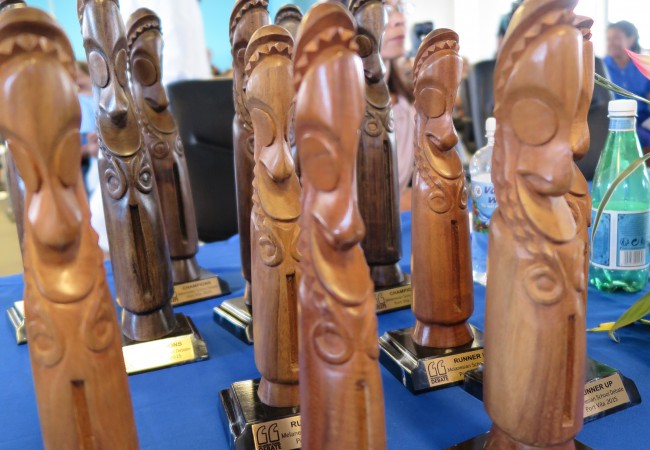
There are plans to include New Caledonia and West Papua into the Melanesian competition, and expand into Polynesia and Micronesia with a Pacific wide final. With such great potential, there is much scope to build upon these early foundations and create something that will help shape the future leaders of the region.
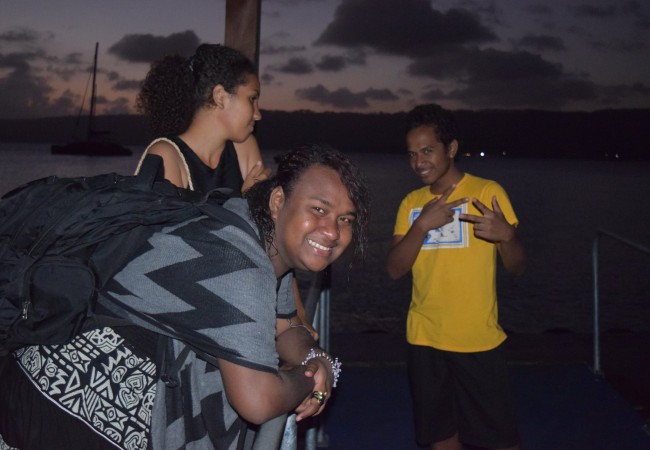
Teams come together to enjoy Mele beach at the closing ceremony.
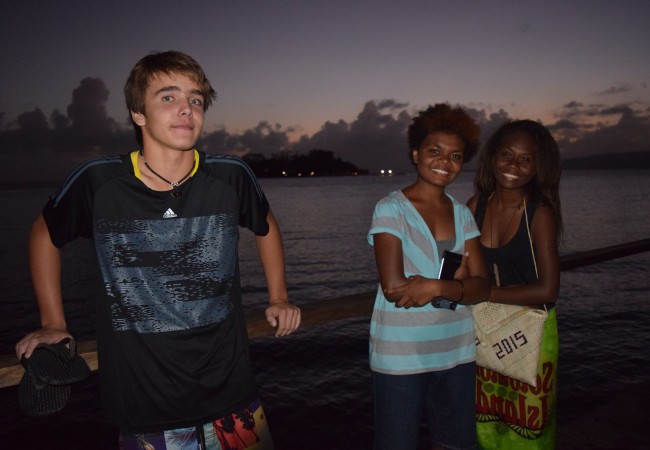
Next year the Melanesian School debate will be hosted by the Solomon Islands.

